Today, you’ll learn how to agree in Korean! Why? Knowing ways to say I Agree in Korean is a must for beginners. These are super common phrases and you’ll definitely need them for conversations.
This is ONLY for learners that truly want to speak better Korean. If you’re not serious, go away. So take this Korean lesson…
- Read, review, and read out loud
- Print it out as physical review material (I like printing stuff)
- Save images for your personal use (as flashcards)
✅ Hey, if you REALLY want to learn & speak Korean with a full learning system + 1,000s of Audio & Video lessons by teachers – Sign up at KoreanClass101 (click here) and start learning! I recommend them as a teacher and a learner.
15 Phrases to Say I Agree in Korean
1) I agree.
- 동의해요.
- Donguihaeyo.
This is the first and most basic phrase. The most direct way to say I agree in Korean. The rest of the phrases you’ll learn today are varations of agreeing and they will make you sound like a more fluent speaker.
(Because you can express yourself in multiple ways!)
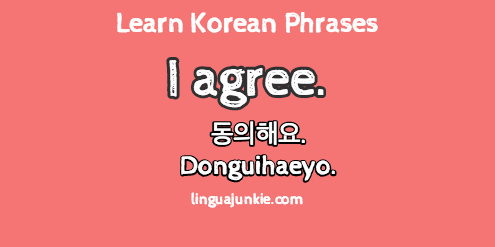
2) That’s true.
- 그건 사실이야.
- Geugeon sasiriya.
Another variation of saying I agree in Korean.

3) Yes, you’re right.
- 네, 맞아요.
- Ne, majayo.
Here’s a bit of a different variation. And keep majayo in mind. It’s meaning is fairly loose. In fact, you can use it as “exactly” which you will see below.
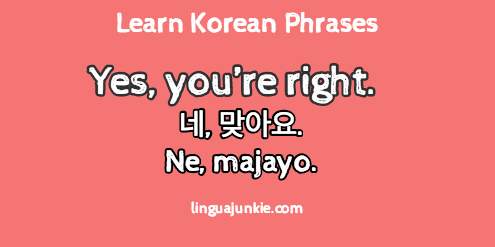
4) I couldn’t agree with you more.
- Jeonjeogeuro donguihaeyo
- 전적으로 동의해요.
When you just can’t disagree with someone. You can’t disagree about their taste in K-Pop. In K-drama. This is your go to phrase.

5) That’s exactly how I feel.
- 저도 같은 생각이에요.
- Jeodo gateun saenggagieyo.
Another variation to use. Literally, it means “I’m the same way.”
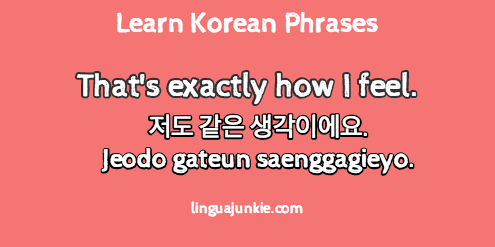
6) Exactly.
- 맞아요.
- Majayo.
Alright, this is a common Korean word in general. If you’re a beginner, you should definitely keep this one in mind! Use it exactly how you would in English.
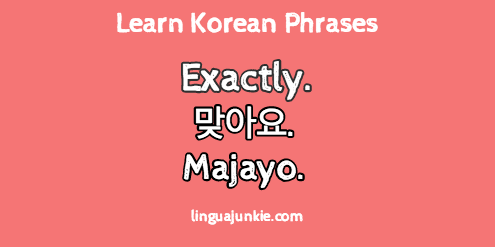
7) No doubt about it.
- 확실해요.
- Hwaksilhaeyo.
A more literal translation of this is “I’m sure.” But as you know, Korean is NOT DIRECTLY translatable to English so that’s why more than one meaning can be applied. Depends on context. Well, too much for you, as a beginner to think about just yet, just learn it!

8) You have a point there.
- 그 말도 일리가 있네요.
- Geu maldo illiga inneyo.
Did you hear a point that caught you off guard? Only smart people can sense when they’re wrong and admit it! This is the perfect Korean phrase to use!

9) I was just going to say that.
- 저도 그 말을 하려고 했어요.
- Jeodo geu mareul haryeogo haesseoyo.
Great conversational phrase to use in general. Textbooks won’t teach you this one.
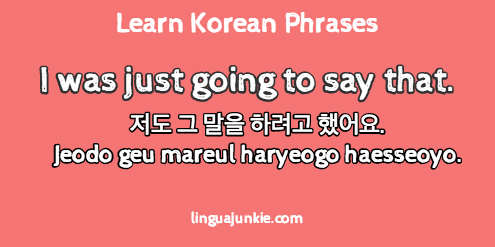
10) I guess so.
- 그런 거 같아요.
- Geureon geo gatayo.
This is a weak way of saying I agree in Korean. Or… when you just don’t know or just don’t care.

11) I don’t disagree with you.
- 저도 반대하지는 않아요.
- Jeodo bandaehajineun anayo.
Very neutral phrase for agreeing. Great to use when you’re not completely disagreeing with a person but want to bring another point to them.
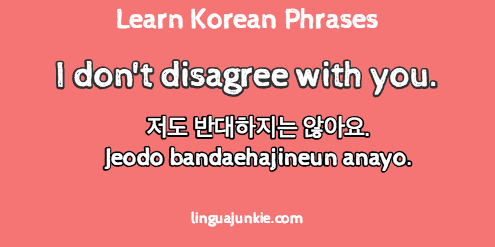
12) If you say so.
- 정 그렇다면 알겠어요.
- Jeong geureotamyeon algesseoyo.
Another weak way of agreeing. Be careful with this phrase because it does carry a sense of “I don’t care, whatever” if you say it in Korean.

13) Of course.
- 당연하죠.
- Dangyeonhajyo.
You’ll hear this a lot in Korean conversations.
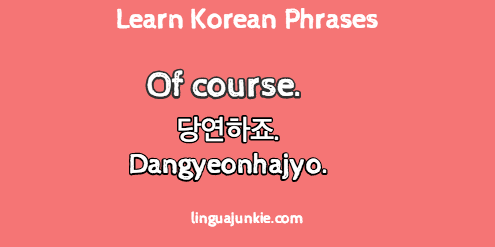
14) Maybe.
- 아마도요.
- Amadoyo.
In general, “Maybe” is a common and most know word in Korean. Whether you’re agreeing in a super weak, passive, willy-nilly way or want to use it in another fashion.
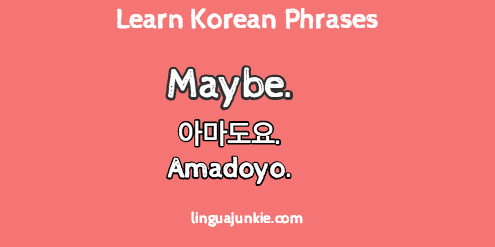
15) Absolutely.
- 그럼요.
- Geureomyo.
Final word of agreement, and too, a common word to know – to leave you with.
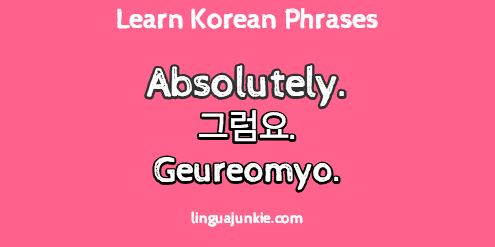
Now you know a good 15 ways to say I agree in Korean. Why is it so important that you know variations? They make you sound smart. If you can express yourself in more than one way and can express multiple nuances, you’re that much closer to fluency. That’s why!
So what’d you think?
Do you agree with this list? Do you want a lesson on DISAGREEING in Korean?
Leave a comment!
– The Main Junkie
P.S. I highly recommend this for Korean learners. If you REALLY want to learn Korean with effective lessons by real teachers – Sign up for free at KoreanClass101 (click here) and start learning!
Doch welchen Ziel ein Kredit auch immer dienen soll, eines ist wahrscheinlich: man kann mit einem
Kreditvergleich dieser Kreditanbieter eine Fülle Geld sparen. Darüber hinaus spielt der Vorsatz der Beantragung eine wichtige Rolle.
Sounds like they are saying “Coma Sayo” as a greeting?
I’ve heard in some variety show that they say “injong” and the subtitle translated it as “agree”. Is that correct?